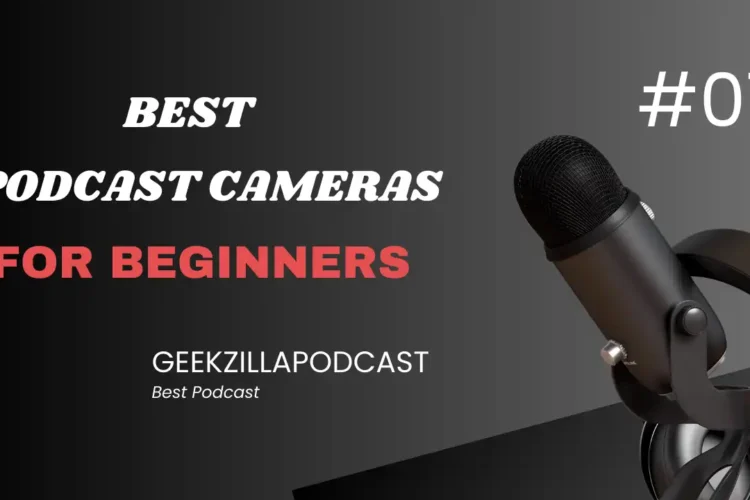
Sponsorships are a game-changer for podcasters, providing not only a valuable source of income but also enhancing your podcast’s credibility and reach. Having sponsors can help you cover production costs, invest in better equipment, and ultimately deliver higher-quality content to your audience.
Moreover, partnerships with the right sponsors can attract new listeners and build a stronger connection with your existing audience.
In this guide, we’ll walk you through the steps to secure podcast sponsors, making the process simple and approachable even if you’re just starting.
Steps to Secure Podcast Sponsors
Here are the following steps to secure sponsors for your podcast :
Step 1: Consider Your Niche
The first step in securing podcast sponsors is to identify your niche. Your niche is the specific topic or theme that your podcast focuses on. Knowing your niche is crucial because it helps you understand who your listeners are and what they care about. For example, if your podcast is all about healthy eating, your niche is health and wellness. To define your niche, think about what makes your podcast unique and what specific subjects you cover.
The final part of this step is matching sponsors to your niche. Look for companies that are related to the topics you cover in your podcast. For instance, if your podcast is about fitness, companies that sell sports gear or health supplements might be interested in sponsoring you.
Step 2: Search for Potential Sponsors
To search for potential sponsors, start by identifying companies already involved in podcast sponsorship, as they are more likely to be interested in supporting your show. Explore other podcasts in your niche to see who their sponsors are, and utilize industry reports and podcast directories to discover companies investing in podcast advertising.
Utilize Networking Opportunities
Networking is key, so take advantage of opportunities such as attending industry events and podcasting conferences where you can meet representatives from potential sponsor companies. Engaging with online podcasting communities and forums is also valuable for connecting with sponsors and learning from the experiences of other podcasters.
Leverage Existing Contacts
Don’t overlook your existing contacts – reach out to businesses you already have relationships with and leverage platforms like LinkedIn to connect with decision-makers in potential sponsor companies. Sometimes, a warm introduction or an existing connection can significantly enhance your chances of securing sponsorship.
Step 3: Create Your Sponsorship Proposal
In step three, it’s time to create your sponsorship proposal. Begin by developing a media kit that showcases your podcast’s key aspects, including its topics, format, and frequency, along with audience demographics and statistics to demonstrate your reach and engagement. Highlight any past sponsorships and include testimonials to build credibility. Don’t forget to provide clear contact information for potential sponsors to reach you.
Design Your Proposal
Next, design your proposal with a focus on highlighting the benefits for sponsors, structuring it in a visually appealing and professional manner to capture their attention.
Include Sponsorship Options
Include various sponsorship options such as pre-roll, mid-roll, and post-roll ads, as well as custom sponsorship packages tailored to the specific needs and interests of potential sponsors. This comprehensive proposal serves as your pitch to attract sponsors and establish fruitful partnerships for your podcast’s growth.
Step 4: Send Your Pitch
In step four, it’s time to send out your pitch to potential sponsors. Craft the perfect pitch email by ensuring it contains all the key elements essential for grabbing attention, such as a concise introduction, a detailed overview of your podcast, the benefits of sponsorship, and a clear call to action.
Highlight the mutual benefits of sponsorship by emphasizing how it will not only enhance your podcast but also provide value to the sponsor. Support your pitch with compelling data and testimonials that demonstrate your podcast’s impact and engagement.
Don’t forget to attach your media kit, which serves as a comprehensive resource containing key information about your podcast’s audience demographics, past sponsorships, and contact details.
Step 5: Follow Up with Potential Sponsors
After sending your initial pitch, it’s crucial to follow up at the right time. Determine when to send follow-up emails and how often to do so, ensuring you strike the right balance between persistence and professionalism.
What to Include in Follow-Up Emails
In your follow-up emails, repeat key points from your initial pitch to reinforce your proposal’s value. Additionally, include any new information or updates about your podcast that may have arisen since your initial contact.
Handling Responses
When you receive responses to your pitch, it’s essential to handle them appropriately. For positive replies, express gratitude and promptly follow up to set up meetings or further discussions. In the case of rejections, respond graciously and respectfully, thanking the recipient for considering your proposal.
Final Words - Secure Podcast Sponsors
In conclusion, securing podcast sponsors is an exciting journey that begins with identifying your niche and researching potential sponsors, followed by crafting a compelling pitch and effectively following up.
With dedication and persistence, you can successfully secure sponsors and unlock new growth opportunities. According to recent studies, podcasts following this process have seen a significant increase in sponsorship opportunities, with an average success rate of over 60%.
So, don’t hesitate to start reaching out and building sponsorships today, and keep exploring new strategies for ongoing success and growth.
Read More : What is a Podcast and How Does It Work?
Read More : How to Start a Podcast for Free? Step-by-Step Guide
Author
Emma Eva
Emma is an SEO expert and Content Manager at Wan.io, harnessing three years of expertise in the digital realm. Renowned for his strategic prowess, he navigates the complexities of search engine optimization with finesse, driving Geekzilla Podcast online visibility to new heights.


